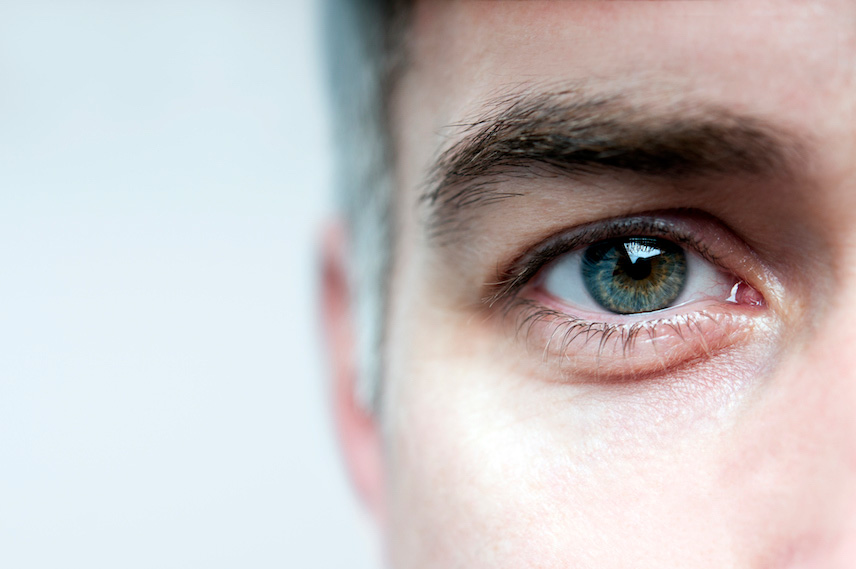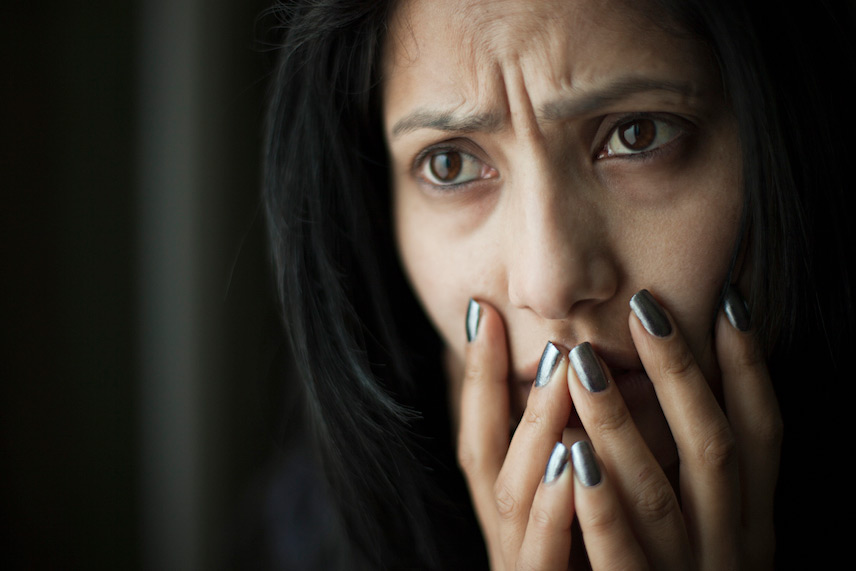[vc_row row_scroll_icon="no"][vc_column][vc_column_text css=".vc_custom_1517572552138{margin-bottom: 15px !important;}"][/vc_column_text][vc_column_text] [embed width="425" height="239"]http://www.youtube.com/watch?v=81FP_7JUQLs[/embed] Video: Mental Health In Children & Young People Although serious mental illness is rare in young people, it is not uncommon for children to experience emotional and behavioural problems which affect their daily lives and relationships. These are often a response to difficulties in the family or school, or a stressful event, such as bereavement, bullying, or parental separation. They may also be associated with physical illness or developmental disabilities, including learning difficulties, ADHD or Autistic Spectrum Disorder. Our experienced Child & Adolescent Mental Health Services (CAMHS) team is here to help. [embed width="425" height="239"]http://www.youtube.com/watch?v=81FP_7JUQLs[/embed] Video: Mental Health In Children & Young People Assessment of a child or young person’s mental health therefore involves looking at their medical and developmental history, family history, school functioning and relationships at home and school, and getting the perspectives of the child themselves, their parents and other relevant adults such as teachers. A range of treatments may be offered, including 1-to-1 sessions with the child, family work, liaison with other professionals and medication.[/vc_column_text][vc_column_text] Some Problems That We Could Help With [/vc_column_text][/vc_column][/vc_row][vc_row row_scroll_icon="no" css=".vc_custom_1501253242148{margin-top: 10px !important;}"][vc_column][eltd_accordion style="toggle"][eltd_accordion_tab icon_pack="" title="Attention Deficit Hyperactivity Disorder (ADHD) in Children"][vc_column_text]Attention Deficit Hyperactivity Disorder (ADHD is a disorder which affects everyday life. Children with ADHD often find it difficult to sit still and listen, find it tricky to follow instructions, and after often seen as troublemakers. ADHD can manifest in a number of ways, including an inability to learn and play along with others. Read more about ADHD here.[/vc_column_text][/eltd_accordion_tab][eltd_accordion_tab icon_pack="" title="Childhood Anxiety"][vc_column_text]Anxiety is an experience which we all have at some point in our lives to varying degrees. Sometimes it can usefully motivate us to do things that we may not want to do, such as studying for an exam or attending an interview. However, when anxiety becomes overwhelming and we avoid or are prevented from doing our best in tasks it can become very stressful. Severe anxiety may be triggered by a stressful event, such as bereavement or bullying. Symptoms can include somatic symptoms such as headaches or tummy aches, chest pains, palpitations, cold hands and feet, blurred vision, dizziness and nausea, which can seriously affect our everyday functioning, although there is no actual physical illness.[/vc_column_text][/eltd_accordion_tab][eltd_accordion_tab icon_pack="" title="Autistic Spectrum Disorders (ASD) in Children"][vc_column_text]These include Asperger syndrome and produce difficulties in 3 areas: Social interaction – including lack of understanding and awareness of other people's emotions and feelings. Language and communication skills – including...
[vc_row row_scroll_icon="no"][vc_column][vc_column_text] Here at The London Psychiatry Centre, we are able to provide expert Eye Movement Desensitisation and Reprocessing (EMDR) therapy, a recommended first line treatment for trauma victims. ETNS can also be used for epilepsy, PTSD and ADHD. EMDR is a type of psychotherapy for the treatment of trauma and evidence has indicated positive outcomes. For a first-hand account on the effectiveness of EMDR, please see our Testimonials page. Trauma symptoms can result from undergoing an extremely painful or challenging life experience – for example exposure to war, or the breakdown of a marriage. Trauma appears broadly as intrusive symptoms (thoughts, recollections, perceptions) of the traumatic events, avoidance of reminders (places, people or feelings associated with the trauma) and arousal (difficulty concentrating, sleep disturbances and irritability). If you have been experiencing the effects of trauma, there’s no need to suffer alone. EMDR has been widely endorsed as an effective trauma treatment in many countries, including the UK. At the London Psychiatry Centre we offer the standard EMDR as well as EMDR via the latest technology of Neurotek TM equipment – which in our experience has yielded better results in more severe and treatment-resistant cases. We have provided EMDR for survivors of London’s 7/7 attack, the US 9/11 bombings, as well as Al Qaeda terrorist attacks in Jordan and Dahab in the Middle East. We have also treated survivors of the Thailand Tsunami, the Iraq and Afghanistan wars, and the South African Bush Wars. Furthermore, we have significant experience in successfully treating victims of ‘non-life-threatening’ situations like extra marital affairs, work-place bullying, burglaries, armed robberies, road traffic accidents, surgical complications, and physical or sexual abuse using EMDR.[/vc_column_text][/vc_column][/vc_row][vc_row row_scroll_icon="no" css=".vc_custom_1501497593009{margin-top: 20px !important;}"][vc_column][eltd_accordion style="toggle"][eltd_accordion_tab icon_pack="" title="What Is EMDR?"][vc_column_text]EMDR is a highly-regarded evidence-based treatment discovered accidentally by Francine Shapiro in 1987, who found that following a line of trees in the park whilst walking reduced distress from upsetting memories. She then developed and perfected the EMDR technique.[/vc_column_text][/eltd_accordion_tab][eltd_accordion_tab icon_pack="" title="How Effective is EMDR?"][vc_column_text]EMDR gives significant results after a few sessions, in contrast with CBT which is a more lengthy treatment for trauma. Both therapies can also be combined. Read first hand evidence on the effectiveness of the EMDR treatment on our Testimonials page.[/vc_column_text][/eltd_accordion_tab][eltd_accordion_tab icon_pack="" title="What Are The Side Effects Of EMDR?"][vc_column_text]As with any psychotherapy treatment, there is a chance that EMDR can lead to high levels of emotions or physical sensations, distressing memories may emerge, and may continue to emerge after the treatment...
[vc_row row_scroll_icon="no"][vc_column][vc_column_text] With an acronym of SAD, some people may not take Seasonal Affective Disorder seriously, but SAD is thought to affect 1 in 3 people, affecting their day-to-day life. Research commissioned by The Weather Channel and YouGov shows that Women are 40 percent more likely than men to experience the symptoms of SAD.[/vc_column_text][/vc_column][/vc_row][vc_row row_scroll_icon="no"][vc_column][vc_empty_space height="20px"][eltd_accordion style="toggle"][eltd_accordion_tab icon_pack="" title="What Is SAD?"][vc_column_text]Seasonal Affective Disorder (SAD), also called winter blues or winter depression, is a form of depression. SAD is linked strongly to the changes in seasons - and the lack of daylight during the winter - and comes and goes. There is a definite link between the amount of sun a person gets, their levels of Vitamin D and mental health. During seasons with little or no sun, some people are more likely to have to deal with depression more frequently.[/vc_column_text][/eltd_accordion_tab][eltd_accordion_tab icon_pack="" title="What Are The Symptoms Of SAD?"][vc_column_text]There are many symptoms of SAD, which often have an affect on day-to-day activities. Some of the most common ones you may be experiencing include: Feeling lethargic and lacking energy Finding it difficult to get up and out of bed in the mornings Low mood Low self esteem Irritability Lack of pleasure from everyday activities [/vc_column_text][/eltd_accordion_tab][eltd_accordion_tab icon_pack="" title="Treatment For Seasonal Affective Disorder (SAD)"][vc_column_text]The good news is that there are many things that can be done to help with Seasonal Affective Disorder, including Cognitive Behavioural Therapy (CBT).[/vc_column_text][/eltd_accordion_tab][/eltd_accordion][/vc_column][/vc_row][vc_row row_scroll_icon="no"][vc_column][vc_column_text] [/vc_column_text][/vc_column][/vc_row][vc_row row_scroll_icon="no" content_aligment="center"][vc_column][eltd_icon icon_pack="linear_icons" linear_icon="lnr-phone" size="eltd-icon-medium" type="normal" icon_animation=""][vc_column_text css=".vc_custom_1501065988569{margin-top: 13px !important;}"]If you think you are suffering from SAD, in the first instance please book an initial consultation with one of our experts by calling us on 020 7580 4224.[/vc_column_text][/vc_column][/vc_row]...
[vc_row row_scroll_icon="no"][vc_column][vc_column_text][/vc_column_text][vc_column_text]What is bipolar disorder? Bipolar Disorder is a mood disorder that is characterised by alternating periods of mania and depression. It was formerly known as manic depression. People with bipolar disorder can swing from extreme highs to extreme lows, sometimes very quickly. This can often feel confusing or even frightening for the sufferer and their loved ones. The good news is that effective bipolar treatments are available for people with bipolar disorder. At the London Psychiatry Centre, we have a wealth of knowledge and experience with the condition and can help you take the right steps to move forward in improving your quality of life. The first is recognising there is a problem, and seeking an accurate diagnosis.[/vc_column_text][/vc_column][/vc_row][vc_row row_scroll_icon="no" css=".vc_custom_1501251428963{margin-top: 10px !important;}"][vc_column][eltd_accordion style="toggle"][eltd_accordion_tab icon_pack="" title="Types Of Bipolar Disorder"][vc_column_text]The various types of bipolar disorder and their symptoms are described below: Bipolar I This applies to patients who have one or more manic or mixed episodes, often combined with depression. Patients with bipolar I disorder typically have severe manic (high) episodes along with shorter depressive episodes. In other words, they are ‘high’ more often than they are low – which can make this condition hard to recognise. Bipolar II Patients with bipolar II disorder tend to have longer periods of depression that alternate with shorter manic episodes. In other words, depression is the dominant factor. Bipolar Disorder Not Otherwise Specified (BD-NOS) When a person doesn’t follow all the patterns of other known forms of the condition, they are said to have BD-NOS, and/or sometimes when bipolar occurs as part of other coexisting mental health conditions.[/vc_column_text][/eltd_accordion_tab][eltd_accordion_tab icon_pack="" title="What Causes Bipolar Disorder?"][vc_column_text]Bipolar disorder is thought to be caused by a combination of biochemical, genetic and environmental factors. It may be due to a lack of serotonin (the ‘happy’ hormone) or an irregular release of other hormones in the brain. Bipolar disorder tends to run in families and may lie dormant for years, only to be triggered by a traumatic event such as a relationship break-up, divorce, job loss, change of home, bereavement, etc.[/vc_column_text][/eltd_accordion_tab][eltd_accordion_tab icon_pack="" title="What Are The Symptoms of Manic Phase (Mania)"][vc_column_text]The so-called ‘manic’ stage of the condition means a person is likely to be bursting with energy and ideas, intense and prone to seemingly bizarre behaviour such as excessive spending, heavy drinking or wild sexual behaviour. Symptoms include: Exaggerated euphoria Insomnia Grandiosity Racing ideas Rapid speech Reckless behaviour [/vc_column_text][/eltd_accordion_tab][eltd_accordion_tab icon_pack="" title="What Are The Symptoms of Depressed Phase (Depression)"][vc_column_text]While a person battling depression may not realise...
[vc_row row_scroll_icon="no"][vc_column][vc_column_text] Adult ADHD, also known as Attention Deficit Hyperactivity Disorder, is a condition characterised by a short attention span, hyperactivity and impulsive behaviour, as well as other symptoms that can impact daily life, work and relationships. [embed width="425" height="239"]http://www.youtube.com/watch?v=7KAzHDQyvZk[/embed] Video: ADHD Symptoms & Treatments Since 2011, our team at The London Psychiatry Centre has been diagnosing and treating ADHD in adults. We are dedicated to delivering world-class care to those with this challenging condition, which affects between three to four percent of adults in the UK with a male-to-female ratio of approximately three to one. Our team of practitioners offers a wealth of experience with a broad spectrum of mental disorders; this is underscored by our recognition for outstanding effectiveness by the Care Quality Commission. Understanding ADHD In Adults Adult ADHD is a neurological disorder with symptoms including persistent difficulties with attention, short-term memory, hyperactivity and impulsiveness. ADHD can disrupt many aspects of daily life, from work and administrative tasks to home life and relationships. A percentage of those with adult ADHD may have already been diagnosed in childhood, but there are many reasons why this might not happen, including familial or societal stigma around mental health, poor access to mental health services, or having mild symptoms that resulted in no diagnosis or misdiagnosis. ADHD in children ADHD is often mistaken for 'bad' behaviour in children, with symptoms including hyperactivity, short attention span, and impulsive behaviour. Learn what's involved in getting a diagnosis, and what help is available. Read more about ADHD in children. Some adults with ADHD may not know they have it, especially those who have not been diagnosed as a child. However, they may identify that they find everyday tasks challenging, including: Meeting deadlines at work, college or university Prioritising responsibilities Remembering or being on time for appointments and social plans Taking medication consistently Consuming a balanced diet and eating regular meals throughout the day Furthermore, individuals with ADHD may be at risk of developing other mental conditions, for example bipolar disorders. It is therefore important to screen for ADHD features and address them in order to prevent the development of other mental disorders. ADHD in children ADHD is often mistaken for 'bad' behaviour in children, with symptoms including hyperactivity, short attention span, and impulsive behaviour. Learn what's involved in getting a diagnosis, and what help is available. Read more about ADHD in children. [/vc_column_text][/vc_column][/vc_row][vc_row row_scroll_icon="no" css=".vc_custom_1501497477938{margin-top: 20px !important;}"][vc_column][eltd_accordion style="toggle"][eltd_accordion_tab icon_pack="" title="How common is adult ADHD?"][vc_column_text]While ADHD has an estimated prevalence of...
[vc_row row_scroll_icon="no"][vc_column][vc_column_text] Intimate relationships can be very satisfying and mutually fulfilling. They can improve our physical and mental wellbeing; providing support, understanding and encouragement as we face life’s challenges. Most adults spend the major part of their life either in, or wanting to be in, an intimate, supportive and satisfying relationship. At The London Psychiatry Centre, we understand that even the most compatible of couples can experience hard times. If you have been going through difficulties in your relationship, the information we have provided below can help you determine if you might benefit from couple counselling.[/vc_column_text][/vc_column][/vc_row][vc_row row_scroll_icon="no"][vc_column][vc_empty_space height="20px"][eltd_accordion style="toggle"][eltd_accordion_tab icon_pack="" title="Why Might I Consider Couple Counselling?"][vc_column_text]There are many reasons why the positive effect of a relationship may be disturbed. Illness, power struggles, stress reactions to life events such as pregnancy and childbirth or redundancy can present a strain. Or other challenges like jealousy and sexual difficulties may hinder an otherwise successful partnership.[/vc_column_text][/eltd_accordion_tab][eltd_accordion_tab icon_pack="" title="When Would Couple Counselling Be Helpful?"][vc_column_text]Counselling is often sought at times of crisis and despair but may be helpful at all stages of a relationship where adjustments need to take place. Taking some time to think about your relationship either alone or with your partner is a step that may lead to a happier and more positive solution to your difficulties.[/vc_column_text][/eltd_accordion_tab][eltd_accordion_tab icon_pack="" title="Who Is Couple Counselling For?"][vc_column_text]Relationships come in many forms and anyone may benefit from thinking about their relationship and how it might be improved. Counselling may be helpful to married couples and cohabiting partners, single sex partnerships and individuals who have left a relationship. Separating and divorcing couples may benefit from an opportunity to explore some of the difficult and complex feelings that arise at this time. This may help the couple to maintain communication and renegotiate a different relationship. This is particularly important when there are children involved.[/vc_column_text][/eltd_accordion_tab][eltd_accordion_tab icon_pack="" title="How Does It Work?"][vc_column_text]A counsellor or therapist who has been specifically trained in couple work helps the individual or couple understand how and where the difficulties have developed. Through this process there is often an improvement in communication and empathy, resulting in a more satisfying relationship. Couple counselling helps couples and individuals to think about different and difficult issues that may affect them within a relationship. For example: Commitment Jealousy Anger Breakdown in trust Extra-marital affairs Pre-marital concerns Sexual problems Divorce and separation Poor communication Arguments Domestic Abuse All these may be reasons for couples or individuals to seek help...
[vc_row row_scroll_icon="no"][vc_column][vc_column_text] Depression and bipolar disorder are strongly associated with heart disease. People with established heart disease are at higher risk of developing depression. At The London Psychiatry Centre on Harley Street, we offer a cardiovascular screening programme in association with Dr Robin Roberts, Consultant Cardiologist. Following a heart attack or cardiac surgery, individuals who become depressed have a worse short-term and long-term outcome compared to people who are not depressed. In the UK people with depression and bipolar disorder are not routinely screened for heart disease and people with heart disease are not routinely screened for depression. Get to the heart of depression. Early detection of cardiovascular disease (CVD) enables early intervention with treatments known to improve long-term health. Early detection and treatment of depression can reduce the risk of developing heart problems.[/vc_column_text][vc_empty_space height="20px"] CARDIOVASCULAR DISEASE AND BIPOLAR A Swedish study looked at all cases of bipolar disorder diagnosed in that population between 1987 and 2006. Although deaths from suicide, accidents and homicide were nearly 10 time higher than in the general population, these deaths accounted for only 18% of total mortality. At 37%, deaths from CVD were more than double this figure. Patients with CVD and bipolar disorder die around 10 years earlier than those with CVD in the general population. For bipolar disorder hospital admission rates for CVD were only a little above average, even though the chances of dying are doubled. This under-treatment of CVD in the bipolar population points to a failure of the healthcare system to identify and address the health needs of those patients. [/vc_column][/vc_row] Depression affects 1 in 10 adults, but up to 1 in 3 people who have had a heart attack. Depression raises levels of “stress” hormones; cortisol, growth hormone and adrenaline. These cause a rise in blood pressure and levels of cholesterol and sugar, which are risk factors for cardiovascular disease. Unmanaged stress can lead to arterial damage, irregular heart rhythms and a weakened immune system. The continued presence of depression after recovery from a heart attack or cardiac surgery increases the risk of death within the first 6 months by five-fold when compared to individuals who are not depressed. For people with heart disease, depression can increase the risk of an adverse cardiac event such as a heart attack or blood clots. For people who do not have heart disease, depression can also increase the risk of a heart attack and development of coronary artery disease. Negative lifestyle habits associated with depression –...
[vc_row row_scroll_icon="no"][vc_column][vc_column_text] Non life threatening trauma can come from disturbing or traumatic experiences, including exposure to marital infidelity, bullying at work, loss of livelihood or family, divorce, or other stressful events such as litigation.[/vc_column_text][/vc_column][/vc_row][vc_row row_scroll_icon="no"][vc_column][vc_empty_space height="20px"][eltd_accordion style="toggle"][eltd_accordion_tab icon_pack="" title="What Is Trauma?"][vc_column_text]Trauma presents broadly with intrusive symptoms, (thoughts, recollections, perceptions) of the traumatic events, avoidance of reminders (places, people or feelings associated with the trauma, and arousal (difficulty concentrating, sleep disturbances and irritability).[/vc_column_text][/eltd_accordion_tab][eltd_accordion_tab icon_pack="" title="What Therapy Is Best For Trauma?"][vc_column_text]Once you sit down with our consultant, they will be able to advise you on the best course of treatment based on what is best suited to you and your needs. We offer the most up to date treatment for trauma including the latest technologies to deliver EMDR, and CBT.[/vc_column_text][/eltd_accordion_tab][eltd_accordion_tab icon_pack="" title="How Long Does It Take To Recover From Emotional Trauma?"][vc_column_text]Recovery from trauma depends varys greatly from person to person but here at The London Psychiatry Centre we can hold your hand through all stages of your journey and help you to feel better.[/vc_column_text][/eltd_accordion_tab][/eltd_accordion][/vc_column][/vc_row][vc_row row_scroll_icon="no"][vc_column][vc_column_text] Trauma can leave you feeling disconnected and unable to trust others, but with our help, we can speed up your recovery and help you move on with your life. [/vc_column_text][/vc_column][/vc_row][vc_row row_scroll_icon="no" content_aligment="center" css=".vc_custom_1500373361164{margin-top: 20px !important;}"][vc_column][eltd_icon icon_pack="linear_icons" linear_icon="lnr-phone" size="eltd-icon-medium" type="normal" icon_animation=""][vc_column_text]To start your recovery, just pick up the phone to book an appointment with our specialist team. Call us on 020 7580 4224 and speak to a member of the team.[/vc_column_text][/vc_column][/vc_row]...
[vc_row row_scroll_icon="no"][vc_column][vc_column_text] Anxiety disorder can feel like a terrifying condition that compromises your quality of life. The good news is that here at The London Psychiatry Centre our expert psychiatrists and therapists can offer effective treatment for anxiety. If you are experiencing anxiety disorder, you may have sudden episodes or long-term anxiety that infringes on your stability and peace of mind. Whatever the frequency of your symptoms, this condition can have physical as well as psychological consequences. High levels of the stress hormone cortisol in the body can wreak havoc on the endocrine system and, in the long term, may even contribute to heart disease. You may feel permanently lethargic but unable to get a good night’s sleep. Your skin, hair and nails might feel increasingly dry and brittle. Your mind might be plagued with repetitive thoughts and/or irrational fears. There is no need to suffer in silence. We offer a range of highly-effective treatments which can help get you back on track as swiftly as possible. You’ll receive the best possible care in a totally non-judgemental environment. [/vc_column_text][/vc_column][/vc_row][vc_row row_scroll_icon="no" css=".vc_custom_1501497517983{margin-top: 20px !important;}"][vc_column][eltd_accordion style="toggle"][eltd_accordion_tab icon_pack="" title="Types of Anxiety Disorders"][vc_column_text] Generalised Anxiety Disorder: Excessive and unrelenting anxiety and worry. Obsessive-Compulsive Disorder (OCD): These are generally characterised by uncontrollable thoughts and repetitive, ritualised behaviours such as repeatedly washing hands or checking mirrors. Panic Disorder: When a person has frequent panic attacks which are not triggered by specific situations. Post-Traumatic Stress Disorder (PTSD): While historically associated with servicemen who’ve been in battle, PTSD can affect anyone who has been significantly stressed by a person or situation. Phobias: These are often the source of anxiety or panic attacks. They’re typically triggered by specific thoughts or situations. Examples include Social Phobia or Social Anxiety Disorder (fear of mixing with people), Agoraphobia (fear of leaving your home/open spaces), Arachnophobia (fear of spiders, snakes) etc. [/vc_column_text][/eltd_accordion_tab][eltd_accordion_tab icon_pack="" title="Symptoms of Anxiety Disorders"][vc_column_text]Anxiety disorder often triggers physical symptoms such as: Frequently needing to pass water or diarrhoea Feeling tense and jumpy Frequent feelings of apprehension Trouble concentrating Headaches and fatigue Insomnia Sweating and upset stomach or dizziness Shortness of breath Tremors and twitches Anticipating the worst all the time Irritability and restlessness Watching for signs of danger Feeling like the mind has gone blank or somehow frozen Pounding heart and general muscle tension [/vc_column_text][/eltd_accordion_tab][eltd_accordion_tab icon_pack="" title="Treatment for Anxiety Disorders"][vc_column_text]Anxiety disorder may feel like a crippling condition but there is no need to let it ruin your...











